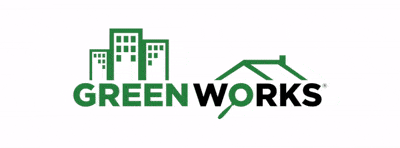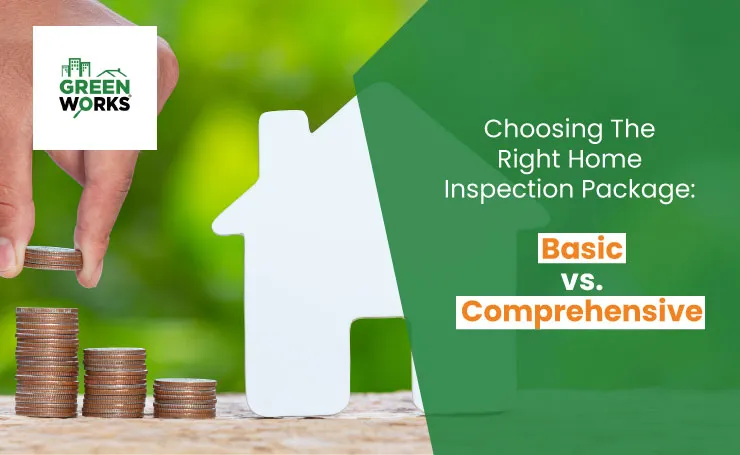Posts
7 Common Defects Found During New Construction Inspections
Buying a brand-new home feels like a dream, until hidden issues start to show up. Poor drainage, faulty wiring, or cosmetic shortcuts could be waiting behind the walls. That’s why a new construction inspection is more than just a formality; it’s your protection plan.
As a matter of fact, not many people realize this.
New construction inspections often uncover problems that homeowners may not expect. Your brand-new home may still be hiding some defects behind the gleaming exterior. Rushed construction, meeting tight deadlines, mishaps by subcontractors, and a lack of coordination among contractors and subcontractors often leave issues even in new homes.
Let’s walk through the seven most common problems with new-build houses found during new construction inspections and why they matter to you.

1. Inappropriate Grading and Water Drainage
Grading and drainage may not seem exciting, but poor water flow is one of the most damaging issues a home can face. There should always be a way for water to drain away from the base of your home. If the slope is not right, rainwater may sit next to your house and cause the following problems:
- Foundation cracks.
- Basement leaks.
- Mold and mildew.
Usually, it occurs when landscaping is not carried out thoroughly.
2. HVAC Problems
Problems with heating and cooling systems are fairly common in newly built houses. The usual problems include poorly balanced or improperly installed HVAC systems. This might result in rooms that are either too warm or too cold, regardless of whether the system is operating at its full capacity.
An HVAC system is checked for several things during a new construction inspection. Some of them include the following.
- Correct setup and exhaust removal.
- Functional thermostats.
- Ensuring that enough air vents and outlets are in place.
Any mistakes at this point may increase your monthly energy and comfort costs.
3. Plumbing Leaks or Loose Connections
Although new pipes are expected to work perfectly, sometimes they do not. If you have a single loose connection in a pipe behind your wall, it could cause great problems if it isn’t fixed early.
Many times, inspectors come across:
- Valves or traps that do not close correctly.
- Faucets that are not tight enough.
- Inadequate water pressure.
- Improperly installed water heaters.
Most of these problems happen because workers seem to be in a hurry or managers are not overseeing things enough.
4. Problems Caused by Electrical Wiring
Electrical issues are silent threats. Exposed wires, missing GFCI outlets, or improperly installed circuits can turn your dream home into a safety hazard.
The following are some of the usual problems:
- Outlets that do not work properly.
- Incorrect wiring in the system.
- Unsecured wires or open electrical junction boxes.
- No GFCI outlet in wet places.
The National Fire Protection Association reports that many house fires are caused by incorrect wiring. For this reason, it’s essential to address these issues from the outset.
5. Structural Shortcuts
There are times when problems exist in the actual structure of the house. Those drywall panels may conceal flaws in the wall’s structure that will become apparent when you attempt to attach something to it.
Common structural shortcuts found in new houses include:
- Bowed walls or uneven framing.
- Mistakes in joist spacing.
- Badly installed doors or windows.
- Sagging rooflines.
Most of the time, these problems develop due to rushed construction and inadequate attention to framing quality.
6. Cosmetic Defects and Finishing Flaws
Cosmetic flaws may seem minor, but in a brand-new home, they signal rushed workmanship. Misaligned tiles or sloppy trim work suggest corners were cut. Remember, you wanted to buy a brand-new home because you did not want any trouble with it. You deservedly expect everything to be impeccable.
Home inspectors usually find the following issues during a new home inspection in this area.
- Tiles with broken grout in bathrooms.
- Uneven paint job or gaps in drywall.
- Problems with the trim or doors that are not lined up properly.
- Flooring gaps.
Such details may look minor, but they suggest the house was built using several shortcuts.
7. Missing Features or Incomplete Installations
At times, builders are in a hurry to complete their work and go on to another project. Thus, many homeowners realize that:
- The house does not have any attic insulation.
- There are no crawl space vents.
- No smoke or carbon monoxide alarms.
- Appliances were not set up properly or not tested.
It often occurs when constructions are rushed or the sellers push for a quick closing. A new construction inspection is in place to ensure the project is complete and safe.
A Few Words About Pools
Suppose the house you buy includes a pool; allocate spare time for the pool to be inspected by a specialist pool inspector. Pools are typically inspected separately by an expert and are not always included in a standard home inspection.
When a pool is being inspected, everything related to its functioning is looked at, such as the following:
- The strength of the pool’s outer shell.
- Functioning of pumps, filters, and heaters.
- Fencing and covers.
Just as with the house, there can be problems in the pool that are not easy to spot. You need to become aware of them early on, not during your move-in week.
Why You Should Never Skip a New Construction Inspection
Many people think that moving into a new place is a smooth ride, but it’s not that simple. Sometimes, builders cannot inspect every minor detail carefully, as they often have to work on multiple projects simultaneously.
A new construction inspection entails a careful inspection of every part of the home. The good news is that most of the time, if a problem is found before the warranty expires, the builder is obligated to fix it for you free of charge.
Not having an inspection could save you a little money now, but in the long run, it could lead to much higher bills for repairs.
To Sum Up, Protect Your Investment Mindfully
Purchasing a new home is a significant milestone in one’s life. It takes a lot of time and money to own a new home. But don’t forget that not everything is perfect in a new property, so don’t fall for that illusion. When you get a new construction inspection, it confirms that the house you acquire is safe, well-finished, and can last for many years.
At GreenWorks Inspections, we specialize in thorough, independent new construction inspections that help buyers feel confident before closing. We can provide specialized services, such as pool inspections for homes you are buying, so you understand everything before committing.
Get in touch today to schedule a routine inspection for your new home. Don’t let surprises steal the joy of your new home. Schedule your inspection with GreenWorks and move in with ease, knowing everything has been checked, inside and out.



